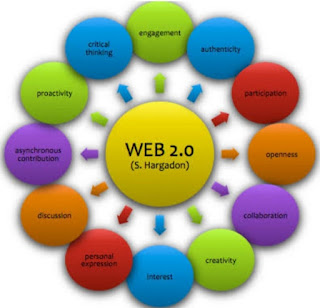Thinking Activity
Hello Readers !
Welcome to my blog. here am going to a share brief history of Computer Assisted Language learning-CALL and also about Mobile Assisted Language Learning-MALL and also about my experience of using Mobile phone for learning. so lets begin !
# History of CALL
Computer Assisted Language Learning : An Introduction
Of course, this topic is with a special interest the area that how computers have been used and are being used for language teaching and the majority of language teachers must now begin to think the implications of computers for language learning.
Three Phases of CALL
CALL has developed gradually over the last 30 years, and this development can be categorized in terms of three distinct phases
1. Behavioristic CALL
2. Communicative CALL
3. Integrative CALL
# The emergence of CALL
CALL that accomodates its changing nature is any process in which a learner uses a computer and, as a result, improves his or her language. An awareness of this spectrum allows learners, teachers, and researchers to recognize appropriate materials and methodologies and adapt others to various teaching and learning styles.
Term peripheral to CALL
CAI- Computer-aided instruction refers to learning at the computer, but not necessarily with a language focus.
CAL- Computer-assisted learning similarly to CAI, CAL may refer to the learning of any subject using a computer.
CALI- Computer- assisted Language Instruction, a term once commonly used in North America
CBT - Computer based Training tends to refer to leaning at the computer, but not necessarily with a language focus.
CMC - Computer mediated Communication refers to a situation in which computer based discussion may take place but without necessarily involving learning.
WELL - Web Enhanced Language Learning refers to CALL that focuses on the WWW as the medium for instruction.
# Technology driving CALL
In the last four decades, CALL materials have gone from an emphasis on basic textural gap- filling tasks and simple programming exercises to interactive multimedia presentation with sound, animation and full- motion video.
Multimedia and speech recognition capabilities have attempted to extend the traditional reading and listening foci of CALL to include writing and speaking activities too. Each of these skills place in CALL continues to develop with the technology.
# The Changing focus of research in CALL
One area of declining interest includes studies which focus on the need for computers in the classroom. Another area of less interest are those studies that attempt to make direct comparisons between CALL and traditional learning in terms of effectiveness.
# CALL in the 1950s and 1960s
The first computers used for language learning were large 1950s' mainframes that were only available at research facilities on university campuses. These presented particular organizational problems as learners had to leave the classroom and travel to a computer, or at least to a computer terminal, for instruction.
Machine translation is the application of computers to the task of translating texts from one natural language to another. The task is made difficult by the impreciseness of language and the use of sarcasm, puns, innuendo, idiomatic expressions and rhetorical devices. In many of these projects, Cold War (1945-91) political motivations may have been involved in funding. The first CALL programs created at three pioneering institutions: Stanford University, Dartmouth University and the University of Essex.
MALL- Mobile Assisted Language Learning
A review of mobile learning projects funded by the European Union since 2001 confirm Ws that mobile phones are the most frequently device in these project.
# what is mobile learning?
Mobile learning is undergoing rapid evolution. Early generations of mobile learning projects tended to propose formally- designed activities, carefully crafted by educators and technologists, and using emerging technologies that are not yet widely accessible or well understood. Current widespread ownership of mobile and wireless devices means that learners are increasingly in a position to take the lead and engage in activities motivated by their personal needs and circumstances of use, including those arising from greater mobility and travel.
Mobile learning involves the use of any portable learning materials, so includes books, audio-cassettes, audio-CD, and portable radios and DVD players, for example, m- learning usually concentrates on the most recent technologies.
Mobile learning can perhaps be defined as 'any educational provision where the sole or dominant technologies are handheld or palmtop devices'.
# Mobile phones
Mobile learning in general, the majority of MALL activities appear to make use of mobile phone. Although Collins outlines very clearly how much activities could take advantages of what these devices offer, the most frequent seem to seem to employ text messaging for vocabulary learning. such approaches support teacher- learner communication and use the mobile device to deliver content rather than encouraging learners to communicate with each other.
# My experience of using Mobile phone for learning
If i share my experience of using mobile phone for learning then i have vast experience, in my academic world now i am able to use mobile phone for learning process, for example using google classroom to attend my academic task or online couse like MOOC , online unite test, or using slide share for preparing presentation or uploading presentation videos on youtube, writting blog, using G-mail, Flint learning and so on.
thank you













